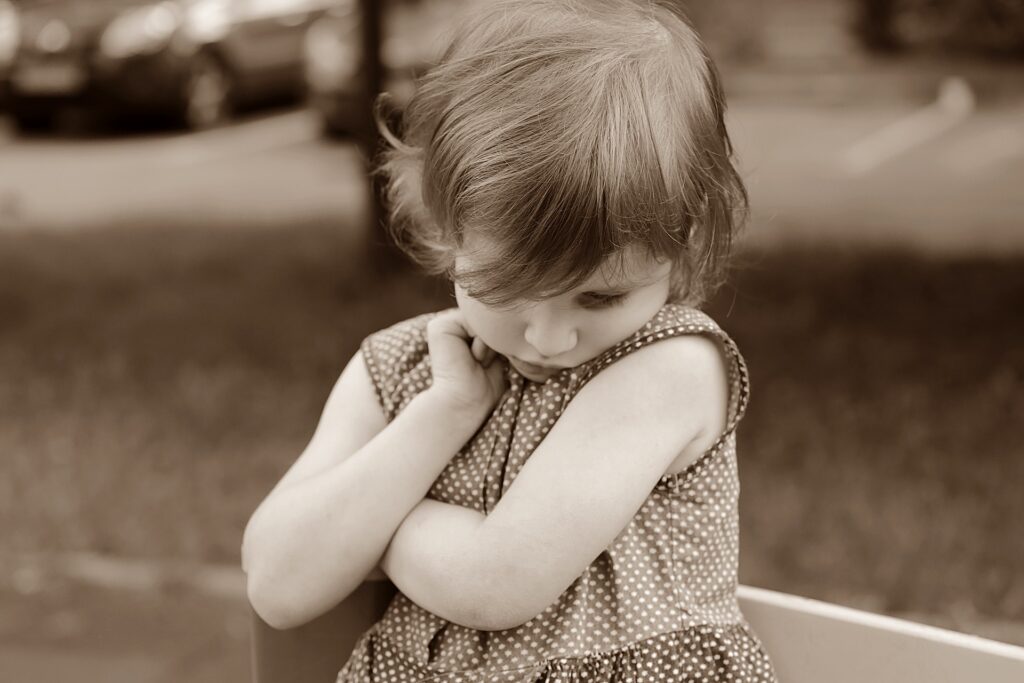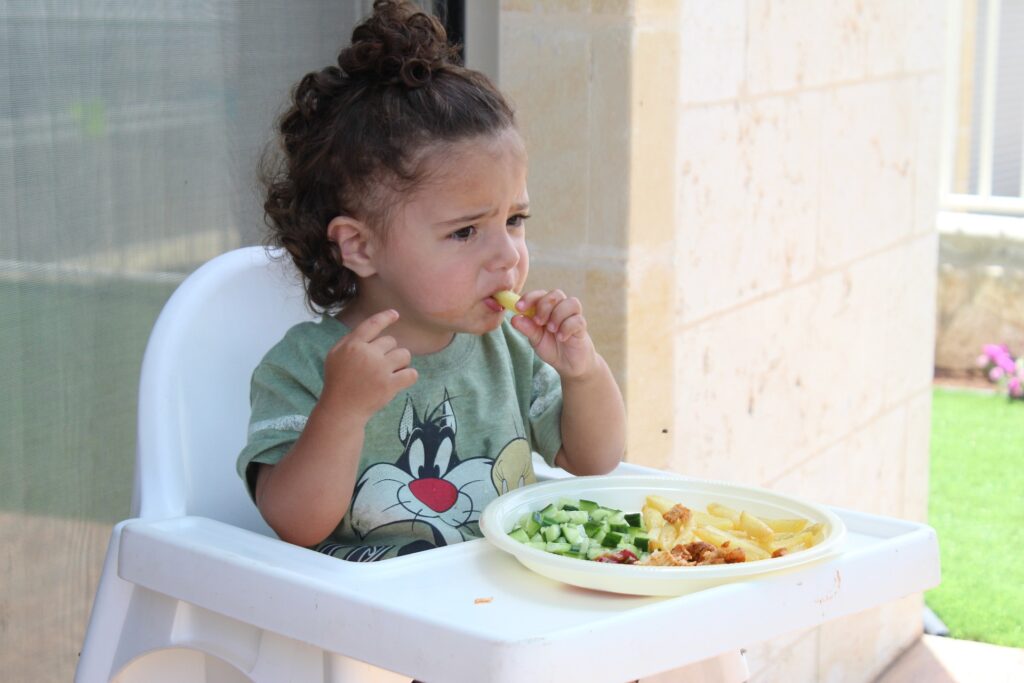Moral growth is one of children’s most important parts of personality development. As a result, it is a big job for society and education. Moral growth occurs in tandem with social development. Socially maladjusted children do the wrong things because their social development has been hampered.
Morality is a complicated concept that children must comprehend and develop as they grow. Moral development is an essential element of child development. This brings up the age-old debate between nature and nurture. Is morality innate, taught, or a combination of the two? Forces of nature, social contacts, and experiences all contribute to a child’s moral growth.
Theorists such as Piaget and Kohlberg dedicated much of their work to studying moral development and how many aspects of life affect a child’s morals as they grow. A child’s understanding of morals and values is shaped by what they learn.
One of the essential parts of moral growth is the formation of empathy. For kids to learn what is right and wrong, they need to be able to understand how other people feel. They must understand how other people feel and know what their actions will mean. In this article, we’ll talk about what moral development means, its stages, the things that affect moral development, its importance, and much more.

What Is Moral Development In Children
Moral development refers to the process through which they learn about right and wrong and how to make decisions that reflect their values and beliefs. It is the process by which children gradually learn what is correct, and incorrect and what is appropriate.
The human sense entails a progression from basic and finite notions of good and wrong to more sophisticated means of differentiating right from wrong, as suggested.
The stages of moral development
There are 5 stages of moral development in children as discussed below
Stage 1. A-moral stage (Infancy):
Moral development in Children begins in infancy. A child can’t moralize because they only know what is right or wrong when it comes to themselves. After being fed for nine months in the womb, a baby enters the world expecting to keep getting care.
Baby, who has never been hungry, decides that hunger is wrong; it hurts. Babies have never felt lonely so they believe being alone is improper. It is frightening. The infants understand that being unresponsive is terrible because they have never been out of touch. They enjoy being in arms, breasts, and being acknowledged. Babies believe they are the center of the universe.
This period lasts from birth until the age of two years. A newborn infant has no concept of good or evil, right or wrong. They are motivated by their desires and urges. He is unconscious of the consequences of his actions on others.

Stage 2. Self-centered stage ( Toddlerhood):
Children’s awareness of “otherness” arises throughout this period of moral development. Toddlers understand that others share their environment and that they, too, have wants and rights. He is frustrated because the place he lives in has “rules” he must learn to follow.
The child cannot determine “good” or “wrong.” He is entirely guided by what people say to him. This clashes with his own determination to achieve his goals. When a youngster strikes, he cannot recognize that he is injuring someone. Hitting is “bad” because either his parents say so or he is punished.
A toddler learns that compliance with adults is the norm based on how parents communicate the behavior they anticipate. Some have been obsessed with this stage for a long time. At this point, the child knows the difference between his own interests and the group’s interests, but he is still unwilling to give up his own interests. A self-centered act is performed fulfil one’s feelings or wishes than to break a moral law.
Stage 3. Preschooler (Conventional stage): Age 3-7
A significant turning point in children’s moral growth and development happens when the child assimilates family values. What matters to his parents becomes significant to him. “In our family, we do certain things…” the six-year-old may remark to a friend. These are the child’s norms.
Once a child has internalized these standards, they can use them to guide their behavior with occasional reminders and parental support. Later in this stage, children start to understand the Golden Rule and think about how their actions affect others, that other people have rights and points of view, and how to be kind.
Children from three to seven expect wiser adults to take charge. They comprehend the “child” and “adult” roles and require parental maturity. They understand consequences and the when-then relationship: when I misbehave, this occurs. The linked child does well in school because his parents have taught him well for a long time.
During this period, the child’s motivation or action is not self-approval but group approval. At this point, a child may disregard his inclinations and generally act in his group. In late childhood, conformity to social group norms is quite prevalent. By doing so, he learns a lot of helpful information.
Stage4. Irrational conscientious stage: Age 7 – 10
The word “conscience” refers to the internal self-criticism that makes a person refuse to do something because it goes against his beliefs, even if it helps him reach his outside goals. Irrational conscientious behavior occurs when a person acts on emotional rather than rational ideals.
Children begin to doubt the authority of their parents and instructors. Perhaps the ones in power need to learn more. They have the highest regard for proper grownups and know how to be in charge. Authority is not intimidating to the child but rather crucial for social interaction. Children, they feel, should obey their parents.
Children aged seven to ten have a strong sense of justice, understand the need for rules, and want to participate in setting the rules. They start to think that youngsters have ideas, and they start to figure out which values benefit them the most — a sort of “what’s in it for me” stage.
Stage 5. Rational altruistic stage(Preteens and Teens):
These children work hard to be popular. They are influenced by peer pressure and values. They may waver between multiple value systems to see which ones fit as they sort out which values will become a part of themselves and which will be discarded. This child becomes more interested in what is good for society and can think more abstractly about moral ideals.
During this stage of moral growth, children may see their parents more as guides than as strict authorities. From infancy through maturity, the evolving moral person moves from self to others “It’s right because it feels right to me” to abstract moral reasoning “It’s right because it is right”.
At this level, a person does not follow the group norm, abstract law, or morality. But he acts and makes decisions based on logic and the best interests of others. Kohlberg talks about six stages of moral development put into three main groups: pre-conventional, conventional, and post-conventional.
(1) Pre-conventional level:
Conduct is controlled externally at this level. Outside pressures or demands constitute required conforming standards of behavior. For example, the parents establish the requirements that must be met. At this point, the motivation for moral behavior is also external. The motivation is to avoid external punishment, get prizes, or obtain favors. This level is divided into two stages:
i. Stage 1: Punishment and obedience orientation:
Fear of punishment motivates obedience. Children have no moral compass or conscience. On the other hand, they exhibit unthinking respect for those with authority to punish. There is no awareness of the rights of others. That might is correct. At this period, the child’s primary focus is on keeping himself out of trouble, saving himself from discomfort, an impediment to independence, and worry. This is analogous to the stage of objective responsibility outlined by Piaget.
ii. Stage 2: Instrumental-relativist orientation:
At this time, the child is still concerned with his own wants but also learns that others have rights. Because of this, he sometimes agrees to give in to what other people want. ‘You stroke my back, I scratch yours.’ Rules are developed to win favors and rewards from others.
(2) Conventional level:
Control over an individual’s behavior remains external at this level. Others set the rules, but the motivation to follow them is personal. Morality is judged by how you do good to keep the social order or what others expect of you.
iii. Stage 3: Nice-child orientation:
The nice-girl/good-boy orientation predominates. “Moral development” is a behavior that makes other people happy and is accepted by them. Appropriate behavior is marked by widespread agreement. At this point, the child attempts to please people and get their acceptance. He follows the rules of society and makes decisions while keeping his own and other people’s goals in mind. Personal responsibility, as defined by Piaget, arises during this period.
iv. Stage 4: Law and order orientation:
The child knows that the social structure is based on individuals performing their tasks and being ready to obey the laws and orders. As a result, moral values become more generic, and the incentive to live up to them moves from concern about the reactions of near others to a sense of obligation to respect authority and preserve societal order.
(3) Post-conventional level:
At this stage, the regulation of behavior becomes internal. The person’s standards are followed, and the decision to act is based on how the person thinks and feels about moral problems. There is a push for independent moral standards with sound foundations and applications.
v. Stage 5: Social contract orientation:
At the social contract orientation stage, there is a sense of duty, but morality is seen as a duty to keep business promises and respect the rights of others. Suitable activities are defined by the norms, needs, and rights universally acknowledged by society. Maintaining social order takes precedence over a sense of justice and legality.
Everyone knows that everyone has rights, no matter what color they are, what gender they are, or how much money they have. At this time, the majority of individuals can function.

The Factors Affecting The Moral Development In Children
1. Family:
The family plays an active part in the moral development of children. In the family, ethical and moral values like cooperation, obedience, discipline, integrity, sincerity, self-submission, compassion, love, honesty, sublimation of impulses, subordination of self to the broader interests of society, and realizing and discharging responsibilities are formed. A friendly setting in the home is beneficial to moral growth.
Immoral family members negatively impact the moral growth of the child. Research shows that parents with lower incomes put a higher value on obeying rules set by other people. Middle-class parents value internal behavioral management. Lower-class guys act more aggressively and feel less remorse than middle-class boys.
Child-rearing factors:
Child upbringing strategies also have an impact on the formation of conscience. Love-oriented techniques in child upbringing are more helpful in developing consciousness. Conscience development occurs well in households where the kid is given praise and affection, and the life of reason is stressed.
2. School:
The school is critical to the moral development of children. The teacher’s social and moral attitudes, habits, interests, values, and beliefs, and the school discipline maintained by love, affection, sympathy, and personal example, have a good impact on the moral growth of pupils.
Activities like mass prayer and morning assembly, social service, self-government, and celebrating the birthdays of great men offer many chances to teach moral values like honesty, obedience, truth, justice, compassion, love, and respect for others. As a result, the pupils get instruction in the habits and graces of moral living.
3. Neighbourhood:
Neighbors’ interests, habits, attitudes, and characters substantially impact children’s moral development. The presence of residences of drunkards, dacoits, gamblers, and prostitutes has a destructive impact on moral growth.
4. Religious institutions:
Temples, Gurudwaras, and churches have long been recognized as fundamentally social and moral organizations. Religion substantially impacts social and moral views as well as moral functioning. Thus, ethnic or religious organizations tremendously impact people’s moral growth.
5. Club and camp experiences:
Clubs and camps help children learn important social and moral values like following rules, being cheerful, polite, kind, working with others, being honest, and being loyal.
6. Playmates and friends:
Playmates and pals have a significant impact on a child’s moral development. They have moral views, beliefs, interests, feelings, habits, and character.
7. Culture:
The current cultural environment dramatically affects how people decide right and wrong. Norms, customs, traditions, mores, folkways, and values of different groups, like the family, school, and society, significantly affect moral development.
8. Community:
Children’s interactions with the communities in which they live significantly contribute to their moral development. The community influences the kid in various ways, including museums, cinemas, libraries, radio and television programs, many other leisure programs, and the communal environment.
What Are The Importance Of Moral Development?
Also, it is crucial for young people to develop a sense of responsibility. This means that they must be able to understand their own values and beliefs and those of others. They need to understand why some actions are wrong and why others might think they are fine. The importance of moral values in children cannot be overstated at any age. These morals and principles were taught to us when we were younger. Because of this, we must instil in our children the values we hope they will carry into adulthood.
The following eight reasons show how important it is to teach children moral values:
1. It helps them develop their character
Moral development in children begins at an early age, and they need to learn essential virtues like compassion, kindness, and humility. It becomes the focal point of their identity and a pillar around their moral convictions. Because of this, it is crucial to instill moral ideals in them when they are still young. These beliefs shape them into the kind of person you hope they will become in the future.
2. It assists them in distinguishing between right and wrong.
The story of four youngsters who stole their parents’ automobile and drove it across the Australian outback grabbed headlines in July this year. According to reports, they also took gasoline from two different gas stations. Although this might sound alarming, it is not an isolated instance at all.
A 2017 Guardian article discussed young people accused of small thefts. The vast majority had one less parent than they should have or none at all. No adult was there to show them the right way or teach them the right values. These youngsters are just extreme instances of the premise that they have no idea what is good or bad.
Keep in mind that they are like sponges and will soak up everything. When they make a mistake, and no one bothers to correct them, they will begin to believe that it is OK to make the same mistake again and again since no one told them otherwise. Until such seemingly insignificant oversights eventually snowball into major scams that land them in jail. Two young children sit together and read a book that instructs them about morality.
3. It alters how they perceive the world around them
When youngsters can distinguish right from wrong, they can also recognize what is good from what is terrible. This contributes to the formation of their view of the world. A young person with a strong moral compass will not be content to take any action when they see an act of wrongdoing. They are going to take action to remedy it in whatever manner that is possible for them.
4. It Will Have an Effect on Their Adult Behavior
A well-known passage from the Holy Bible, which Christians read, states: “If you instruct a child in the direction he should travel while he is young, he will not stray from that path when he is an adult.” (Proverb 22:26) This bible reference is a good reminder that the morals and ethics you teach your children now will have lots of effect on how they act as adults.
5. It protects you from the negative influence of your peers
Most children prefer to live what their peers say or do. It’s natural for kids and early teenagers to look up to the people they hang out with the most. Peer pressure is crucial in people’s decisions about anything from their musical preferences to their fashion sense.
One study found that youngsters with a positive self-image are better able to stand up to the influence of their peers, whether positive or negative. In addition, children brought up with solid moral underpinnings had a greater sense of self-assurance. They have far less of a sense of urgency to keep up with current fashion, which makes it less likely that they will succumb to negative influences.
6. It makes it easier for them to deal with challenging situations
Depression is one of the most significant challenges that young people in our society confront in today’s society. Certain circumstances could put some of us in a more difficult position. However, the consequences can be considerably more severe for children, particularly those not subjected to a significant amount of adult supervision. They can make better selections if they are taught to differentiate between good and evil. They can face challenging circumstances with the confidence gained due to this.
7. It Gives You a Boost in Your Confidence
Children can boost their self-esteem by helping others, such as volunteering at a soup kitchen or donating their old items to those less fortunate. It is not just grownups who get to experience the thrilling sensation that comes along with being able to give back and help others. Children sense it too. This self-affirmation helps raise their self-confidence, which in turn helps them build positive relationships with others, which in turn helps them achieve their potential.
8. It teaches them to consider the needs of other people.
Children are more likely to have a sense of social purpose if they learn about personal responsibility at a young age. They will understand that they are not the centre of the universe and have responsibilities to the people around them. They will learn to be less self-centred and to prioritize the requirements of others over their own as a result of this experience. As adults, it’s our job to ensure that our kids grow up to be helping people in their communities. There will never be a more significant opportunity than the present to shape them into dependable and accountable advertising.
What Does It Mean For A Child To Lack Morals?
A person is said to lack morals if they don’t adhere to a set of guiding principles or norms of behavior. They could also have rules that people decide for themselves or believe in. A lack of morals could mean a person doesn’t follow the rules or values in everyday life.
It’s possible that they don’t care about right and wrong or need help understanding what they should do in specific scenarios. It is also possible to infer that the individual in question lacks a strong sense of morality. Either they do not comprehend the significance of adhering to the rules, or they do not care about the welfare of other people. They might also be ready to use whatever means are necessary to reach their goals.
Anyone can get into trouble if they don’t have any morality. This may be a very hazardous situation. But an immoral person knows the difference between the two but still chooses to act immorally. For example, the “friend” who steals your cutlery knows the difference but still chooses to act immorally.
How To Teach Children Morals & Ethics In Schools

The role of teachers in instituting moral development in our children is as follows:
1. Personal example of teachers:
Moral development is something that is acquired rather than taught. There is no action that a teacher may do in the presence of his students that does not contribute directly or indirectly to the growth of their character and morals.
2. Presenting moral ideals:
The teacher must tell the students about moral ideals and show them how to reach them. He must try to tame, alter, or shape the children’s numerous tendencies. Help them develop moral thoughts, actions, and feelings. Good attitudes such as honesty, truthfulness, cooperation, obedience, fairness, and community service should be encouraged.
3. Example of great heroes:
Teachers should tell their students stories of great heroes in history and religion. This will help the kids understand the importance of good morals.
4. Biographies of great men:
The teacher should tell the kids to read religious books and biographies of important people from history. It is essential to organize conversations concerning ethical dilemmas. Children will benefit from this because it will help them add certain qualities or virtues to their moral development.
5. Celebration of days:
Birthdays and anniversaries of the deaths of religious leaders and heroes, such as Saints, Gurus, Rishis, and Mahatmas, should be commemorated and honored in schools since doing so is beneficial to the student’s development of moral feelings.
6. Other co-curricular activities:
The extracurricular activities at the school are the institution’s linchpin. Every activity that takes place at the school must find a way to demonstrate qualities of character or morals. Children can also learn morals by praying together, meeting in the morning, listening to talks by people with good reputations, and living in certain conditions.
How Parents Can Help Moral Development In Children
“Don’t you know you shouldn’t lie!?!”
Don’t keep silent when you discover a child is telling you lies. Reprimand the child because they know what they are doing, even though babies should already know basic moral rules, like that they shouldn’t lie when they are born.
Your child comes into the world as a soft lump of clay that doesn’t know anything, not even the most basic morals and values. Teach your child the values and ethics you strive to live by, and encourage him to do the same by modeling your behavior. This will better prepare him to make good decisions in the future.
Model values and ethics.
According to Becky Sweat’s article in “The Good News” magazine, if your child sees you lie, they won’t view lying as a negative behavior. Start teaching your child what is and isn’t right by committing to these morals and beliefs.
Encourage empathy.
On their website, AskDrSears.com, the experts on child parenting, William and Martha Sears, claim that the first stage to forming values is growing empathy toward others. Encourage your youngster to consider other people’s emotions by asking them questions.
According to Sweat, you should talk about ordinary occurrences while focusing on the ethical and spiritual lessons learned from them. Take advantage of the situation if you are watching the news and come across a story or segment that poses a moral dilemma for you to consider. Pose the question to your kid, “What would you do in that situation?” and then talk about her answer while pointing her to the correct moral.
Limit the number of immoral examples your child sees.
Children are good observers. They will often do what their good role models do, but they can also do what their lousy role models do. If your child has trouble staying on the right path, check yourself, and getting rid of these bad examples might help. This is especially true if your child spends a lot of time playing video games.
Display Morals
Your actions serve as a powerful example for your youngster to learn from. Your actions as a parent teach him the values and principles essential to you. It’s simple to state that you appreciate virtues like honesty, loyalty, kindness, and forgiveness, but if you don’t put such values into practice in your everyday life, you can’t expect your child to pick them up from you.
That does not imply that you have to be flawless, though. You can make a few mistakes, but you should work toward embodying the ideals you want your kid to demonstrate. This is the best way to teach your child. People in his life, like caretakers or friends, who serve as role models should also have the traits you think are essential.
Create a Moral Environment
How you teach your child values depends on how your home and family life work. Take the focus off your child’s worldly goods and place it on the people you want them to value instead of the stuff they own. Participate in activities your children like or volunteer as a family in the neighborhood.
Reduce the time spent in front of electronic devices for the whole family. Please make sure the shows they watch on television reinforce the values you want them to learn.
Parent With Morals
How you raise your child, from day-to-day activities to disciplinary measures, affects the moral growth of that youngster. When your child is sad, demonstrating empathy toward him will teach him how to demonstrate empathy toward others. If you discipline your child in a way that shows him respect and love, he will understand the difference between right and wrong without you having to sacrifice the values you want him to internalize.
For instance, when punishing your child, use a calm yet authoritative voice rather than yelling and shouting at him. The moral growth of your child will benefit from your encouraging him to take on chores around the house.
Use Real-life Situations
Even if you set an excellent example for your child, they may still see some bad behavior. Children violate certain morals when they are young. Use the conversation to help your child understand what happens when they do the wrong things. If he disrespects his buddy, for instance, by stealing his favorite toy without permission and smashing it inadvertently, his friend would likely feel upset or angry about the situation.
Conclusion
Moral development in children is a process that begins at birth and continues throughout their lifetime. As discussed above, it includes the ability to understand right and wrong, to make decisions based on those understandings, and to act on those decisions.
Many factors contribute to moral development in children. Some of these factors include providing children with positive role models, opportunities to practice their moral values, and the tools they need to make thoughtful decisions.
Moral development in children is a necessary process that helps them learn how to be responsible citizens. You are grooming children to become responsible adults by providing them with the tools they need to become responsible citizens.
Read more of our articles here:https://abundanceandkiddies.com/
Treatment for Children with Anxiety

Pingback: Healthy Eating: Its Value On Gifted Children’s Learning - PARENTING